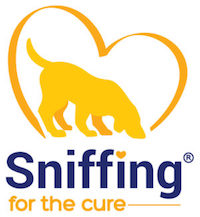Patients with chronic diseases or cancer encounter the challenge of a long therapeutic journey. This can significantly affect the lifestyle and physical and psychological attitudes. During these challenging times, the empathetic presence of a pet can provide emotional support and reduce fear. Pets are an essential part of many families. About 60% homes in the US own a pet, and worldwide about 65% of households own pets. About 77% of families obtain a pet after a family member is diagnosed with cancer (Anon 2019).
Although having pets is not a contraindication for patients with cancer, it is essential to take additional precautions to reduce potential infections.
Why is it important to tell your doctor and cancer care team about your pet(s)?
Some cancer therapies and drugs can affect the immune system. The immune system defends our body against diseases. Sometimes, the drugs that are used to kill cancer also disturb our immune system, making the body more vulnerable to infection.
Are you telling me I need to get rid of my dog and cat? NO!!!
You can keep your furry family member with you. Scientists have found that immunocompromised patients are not at additional risk from pet contact than the general population as long as certain hygiene practices are followed. Also, not all pets pose the same risks, and not all cancer treatments affect the immune system. Factors contributing to increased risk of infection are the type of cancer patient, the pet species, and the husbandry-related and hygiene-related aspects of pet contact. That is why you should tell your doctor that you have pets at home.
How can you get an infection from my pet?
In general, humans can acquire infections through bites, scratches, direct contact of the skin or mucous membranes with body fluids, and contact with urine and fecal material.
How can I avoid infections?
Involve your veterinarian early on in your preventive plan
🐾 Ask your veterinarian to evaluate your pet(s) for any diseases that may cause infection.
🐾 Get preventive medications for heartworms, fleas, or ticks.
🐾 Your dog or cat should receive a routine annual vet examination. Your pup should have a yearly stool examination for Salmonella, Campylobacter, Giardia, and Cryptosporidium.
🐾 Ensure your pet(s) vaccinations are up to date. Your pet should have annual boosters for rabies, canine distemper, hepatitis, leptospirosis, parvovirus, adenovirus, parainfluenza, and FeLV.
🐾 If your dog or cat looks sick, bring your pet to a veterinarian.
🐾 Discuss with your vet spaying or neutering your pet to minimize roaming and interaction with other animals in the wild.
House rules
🐾 Since you will be focused on your health during cancer treatment, it is crucial to get a helper you trust to ensure your pup or cat stays healthy. Identify your helper before you start your treatment. If you cannot find someone who can assist you with your pet, you will need to consider hiring a pet sitting service that assumes responsibility.
🐾 Designate someone who can take care of your pets and living areas if you get too sick and need to be hospitalized. Have your written instructions for cleaning, feeding, medicines, toileting, and veterinary contacts ready.
🐾 Keep your dog and cat indoors. This is to minimize exposure to other pets and animals, such as birds and rodents.
🐾 Since some germs can be picked up by touching your pet; you must wash your hands after petting your pet. Also, your dog or cat needs to be groomed/cleaned regularly.
🐾 If you get sloppy kisses from your dog or cat, you should wash your skin.
🐾 Keep your dog or cat’s sleeping areas clean.
🐾 Wear waterproof disposable gloves if you must pick up dog droppings or clean the cat litter box.
🐾 Even if you wear gloves, you should wash your hands after touching, petting, feeding, or cleaning up after your pets.
🐾 Before eating, handling food, or taking medicines, wash your hands.
🐾 Avoid touching animals that you do not know. Also, avoid contact with amphibians, reptiles, exotic animals, rodents, chickens, and ducks since these are known to carry Salmonella.
🐾 Keep your pup or cat away from animal waste, garbage, and other “found treats.”
🐾 Do not let your pup drink from the toilet or standing water outside.
🐾 Don’t allow your dog to visit with sick pets or wild or stray animals.
🐾 Avoid taking your dog to dog parks and pet stores. Your pup can pick up new infections from these places.
What to do for Bites and Scratches
🐾 Trim your dog or cat’s claws often so that you’re less likely to be scratched.
🐾 Clean and cover any scratches until they heal.
🐾 If you see any redness, swelling, or pus around a scratch, call your doctor immediately.
🐾 If your pet bites you, call your doctor. Bites carry a risk of infection, and you will likely need antibiotic treatment or additional treatment depending on the severity of the bite.
How to handle my pet’s feces and urine
🐾 Keep litter boxes away from where people eat and areas of food preparation.
🐾 If your pup has an accident inside the house, wear disposable waterproof gloves when cleaning up, disinfect the area, and wash your hands afterward.
People with a diagnosis of cancer or chronic diseases are associated with higher levels of anxiety and depression. Similar higher levels of anxiety and depression are also observed among their spouses or significant others. For pet owners, the empathetic presence of their fluffy family members provides emotional support and reduces fear. Since your pet is a valuable family member, be sure to talk to your doctor and veterinarian on how to best care for your pet during these challenging times.





No Comments